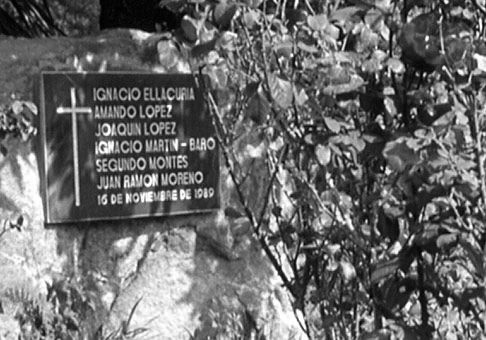Exactly three years ago, on 16 November 1989, six Jesuit priests were slain at Central American University in EI Salvador along with their cook and her 15-year-old daughter.
The massacre was first blamed on guerrillas but the trail led to the army. Eventually, nine members of the military were charged with the crime.
To commemorate this tragic event, the International Commission of Jurists (lCJ) in Geneva and the Fordham University Press in New York are releasing today a new book entitled “A Breach of Impunity”. The title refers to the fact that the trial set a precedent in EI Salvador, a country that had long protected members of the military despite their violations of human rights.
The ICJ sent Alejandro Artucio, Legal Officer for Latin America, to observe the three-day trial in October 1991. In his concise report, Mr. Artucio penetrates the labyrinthine path of the crime and the cover-up. He also tells the story of innocent victims and their assailants.
It was only after pressure from the United States and the United Nations that EI Salvador set up a special panel to look into the massacre, and “what the police investigations had not been able to achieve in two months was accomplished in a matter of days”. The assailants turned out to be members of the elite Atlacatl Battalion formed to fight the Farabundo Martí Front for National Liberation (FMLN).
Two of the men, a colonel and a lieutenant, were convicted and sentenced to 30 years in prison. One soldier left EI Salvador and was tried in absentia. However, the other defendants were found innocent – even though they had confessed to committing the murders.
Thus justice did not really triumph, the report says. The report criticizes the operation of the Salvadoran legal system and notes that two attorneys fled the country for fear of reprisals. Yet it also commends EI Salvador for this first step in breaching the “massive wall of impunity”.
Joseph A. O’Hare, the President of Fordham University, calls the massacre the “work of a military establishment that believed it could operate with reckless impunity in a society where a flawed system of justice made a mockery of human rights”.





